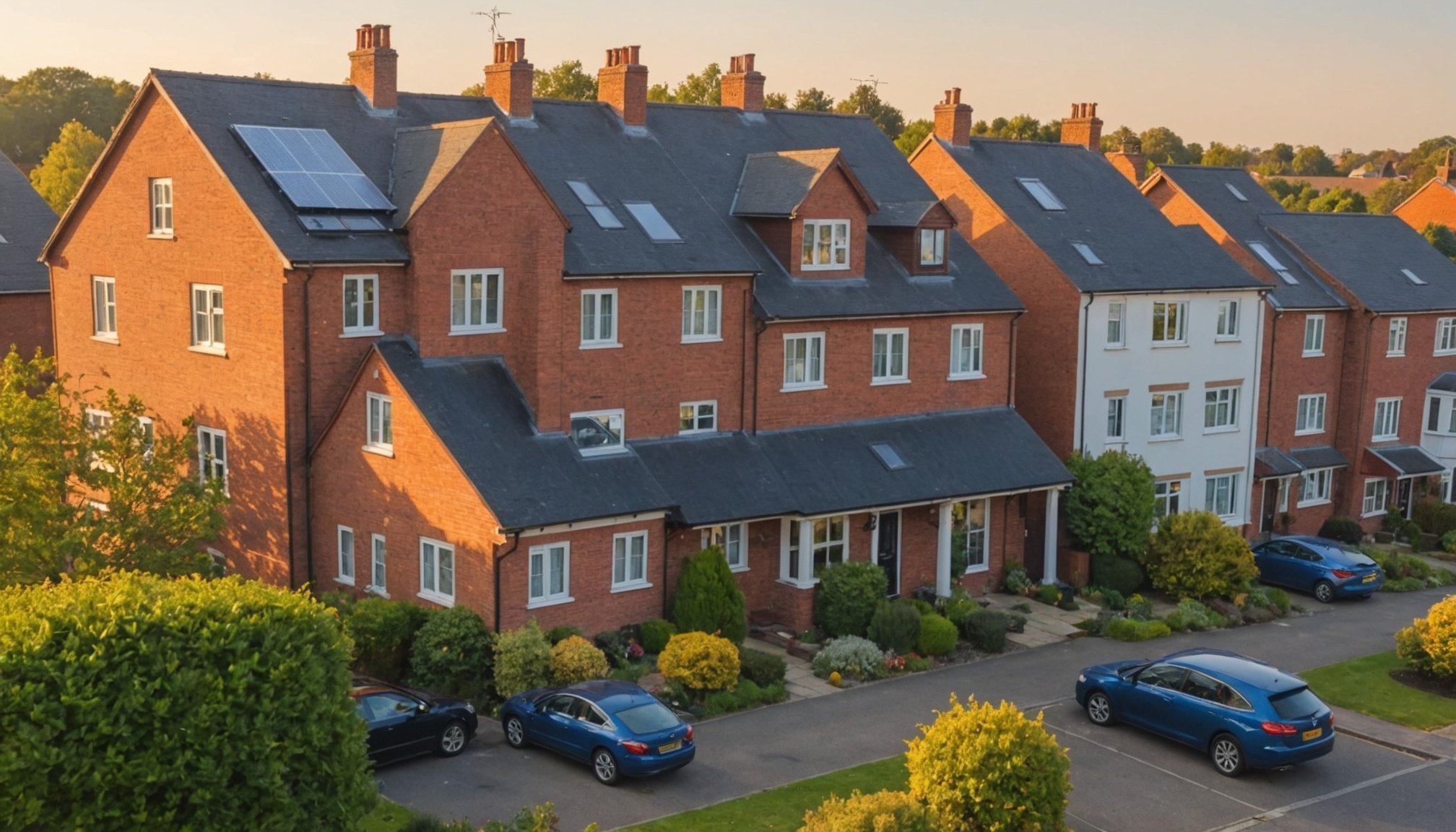In today’s competitive real estate landscape, the demand for energy efficiency has never been higher. As property owners and investors, understanding how energy efficiency improvements can enhance your property’s marketability is crucial. With rising energy costs and a growing emphasis on sustainability, buyers and tenants are increasingly seeking homes and buildings that not only reduce utility expenses but also contribute positively to the environment. Implementing efficient upgrades can lead to significant savings, increased property value, and an appeal that stands out in the ever-evolving real estate market. This article explores the multifaceted benefits of energy efficiency improvements and how they can elevate your property’s desirability.
Understanding Energy Efficiency in Real Estate
Energy efficiency refers to using less energy to provide the same level of comfort and service. In real estate, this concept translates into implementing systems and materials that reduce energy consumption while maintaining productivity and comfort in homes and buildings. As you consider your property, think about how upgrades can improve both operational efficiency and the overall experience for your tenants or occupants.
Additional reading : What are the benefits of investing in new build properties versus older homes?
When investing in energy-efficient upgrades, consider elements such as insulation, windows, heating, and cooling systems, and appliances. Each of these aspects contributes to the overall efficiency of the property. For instance, installing green windows can significantly reduce heat loss, which not only lowers utility bills for tenants but also enhances the property’s aesthetic appeal. Similarly, upgrading to high-efficiency heating and cooling systems can lead to substantial energy savings, making your property more attractive to potential renters or buyers.
One of the most compelling reasons to focus on energy efficiency is its growing importance in the market. According to recent studies, properties that boast energy-efficient features often see increased interest from buyers and tenants. These individuals are not only looking for a place to live but are also becoming more conscious of their ecological footprint. As a result, energy-efficient properties can command higher rents and selling prices, reflecting their desirability in the current market. In summary, understanding the fundamentals of energy efficiency is the first step towards leveraging these improvements to enhance your property’s marketability.
Also to see : How can you leverage equity in your home to finance further property investments?
The Financial Benefits of Energy Efficiency Upgrades
Investing in energy efficiency upgrades can yield impressive financial savings. For property owners, this means not only lower operational costs but also a more attractive bottom line. When you enhance the energy efficiency of your properties, you typically reduce monthly utility bills, which is a significant selling point for potential tenants.
Consider the initial costs of energy-efficient upgrades. While certain improvements may require a substantial upfront investment, the long-term savings can far outweigh these costs. For instance, upgrading to Energy Star-rated appliances may seem pricey at first but leads to lower energy consumption and, consequently, lower utility costs for tenants. This can make your property more appealing in the residential market, where lower living costs are a priority for many.
Moreover, energy-efficient properties can also qualify for various tax credits and rebates, further reducing the overall cost of upgrades. These incentives can enhance your return on investment, making energy efficiency not just an environmentally friendly choice but also a financially savvy one.
Furthermore, energy-efficient properties tend to have lower maintenance costs. Systems that consume less energy often operate more efficiently and require less frequent repairs. This can lead to fewer headaches for property managers and owners alike. Overall, the financial implications of energy efficiency upgrades are significant, offering a compelling case for enhancing your property’s marketability while achieving substantial long-term savings.
Attracting the Right Tenants with Energy Efficiency
In the competitive rental market, attracting the right tenants can be challenging. However, emphasizing the energy efficiency of your property can be a decisive factor in drawing in environmentally conscious renters. These tenants often prioritize sustainable living and are willing to pay a premium for homes that align with their values.
When marketing your property, make sure to highlight its energy-efficient features. This can include anything from solar panels and energy-efficient appliances to superior insulation and modern heating and cooling systems. Providing specific data on potential savings can also help persuade prospective renters. For example, sharing statistics on how much previous tenants saved on their utility bills can make a compelling case.
Additionally, consider developing a green living guide for potential tenants that outlines how they can maximize the energy efficiency of the property. This can include tips on using appliances efficiently, managing heating and cooling, and even recommendations for local recycling programs. By engaging potential tenants in this way, you create a sense of community and shared values, which can lead to longer tenancies and reduced turnover.
Another benefit of attracting energy-efficient tenants is that they tend to be more responsible and engaged with their living environment. Often, these individuals take better care of the property, leading to lower maintenance and repair costs over time. By focusing on energy efficiency, you not only enhance your property’s appeal but also build a positive reputation in the rental market.
The Impact of Energy Efficiency on Property Value
The connection between energy efficiency and property value is increasingly evident in today’s market. As buyers become more aware of the implications of energy consumption, properties that feature energy-efficient upgrades are often valued higher than their less efficient counterparts. This trend is driven by a combination of consumer demand and the changing landscape of real estate investment.
A study conducted by the National Association of Realtors highlighted that homes with high energy efficiency ratings sold for significantly more than similar homes without these features. This is particularly true in urban areas where the cost of living, including utility expenses, is a critical consideration for buyers. As a result, investing in energy efficiency not only serves the current market but also positions your property for future appreciation.
Moreover, energy-efficient buildings are often more resilient to market fluctuations. As climate change continues to impact the real estate sector, properties that prioritize sustainability are likely to maintain their value better than traditional buildings. This resilience makes energy-efficient properties a safer investment for buyers as they look for long-term gains.
Additionally, many buyers are willing to pay a premium for properties that promise lower utility costs and a reduced environmental impact. This shift in buyer sentiment reflects a broader awareness of sustainability and its implications for real estate. By enhancing the energy efficiency of your property, you not only contribute to a more sustainable future but also position your investment for impressive returns in a competitive market.
The influence of energy efficiency improvements on your property’s marketability cannot be underestimated. From financial savings to attracting the right tenants, the benefits are multifaceted and profound. As the real estate market evolves, integrating energy-efficient upgrades becomes not only a smart investment but also a necessity to stay competitive.
By understanding the importance of energy efficiency, you can make informed decisions that enhance your property’s value and appeal. In a world increasingly focused on sustainability, properties that embrace green practices will stand out. As you consider your next steps, remember that investing in energy efficiency is not just an upgrade; it’s a commitment to a sustainable future that brings both immediate and long-term benefits.











